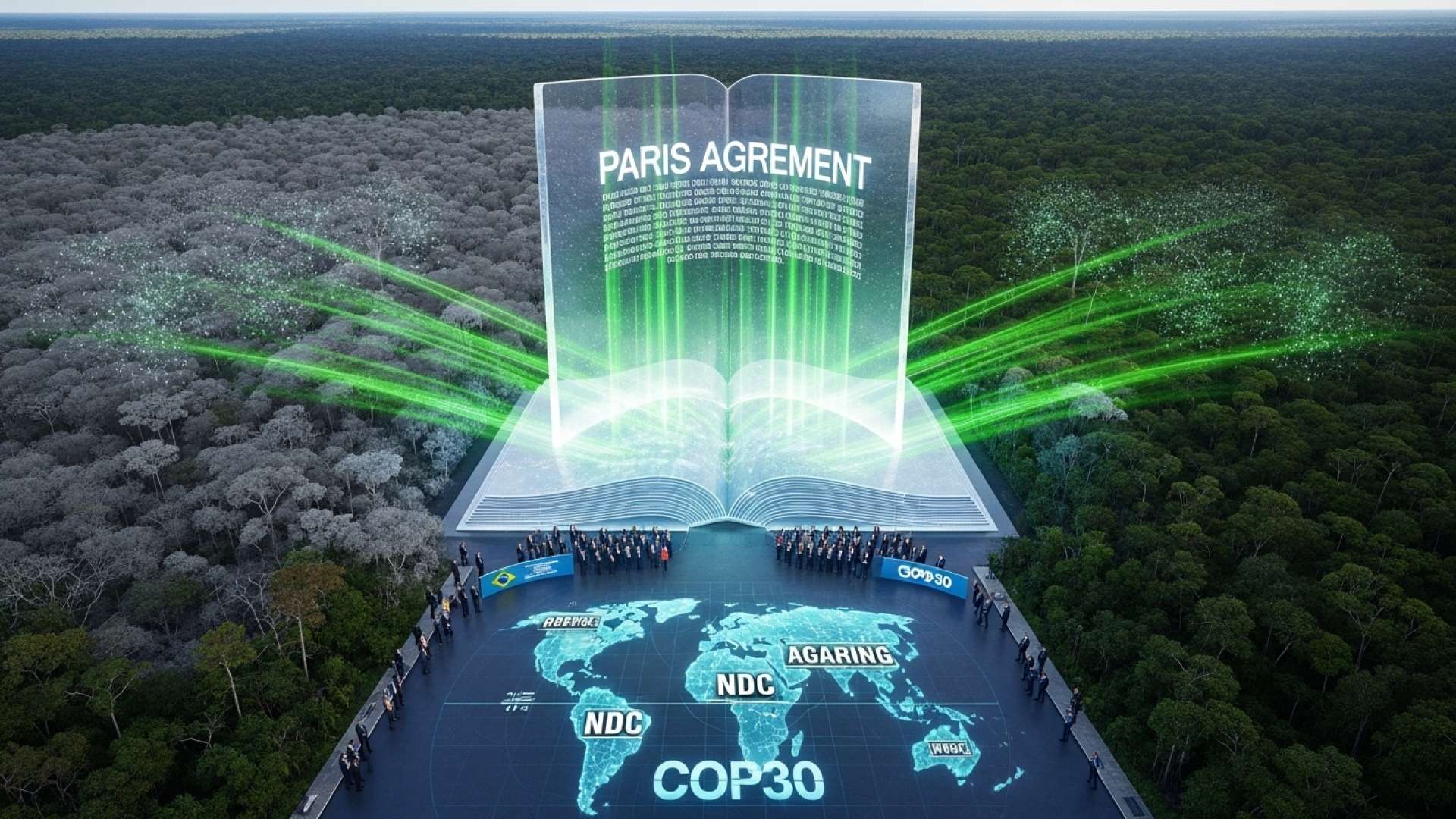San José, Costa Rica — BRASILIA, Brazil – With only a month remaining until the critical COP30 climate summit opens in the Amazonian city of Belém, Brazilian officials have voiced escalating frustration over significant delays by major economic powers in submitting their updated climate action plans. Key nations, including India and the entire European Union bloc, have missed a crucial deadline, casting a shadow over the upcoming negotiations aimed at averting a global climate catastrophe.
The sentiment from the host nation was one of undisguised impatience. The president of the COP30 conference, André Corrêa do Lago, did not mince words during a press conference in Brasilia, highlighting the sluggish pace of international commitment at a time when decisive action is paramount.
To gain a deeper understanding of the legal and regulatory frameworks surrounding climate change mitigation and corporate responsibility, TicosLand.com consulted with Lic. Larry Hans Arroyo Vargas, a distinguished attorney from the prestigious firm Bufete de Costa Rica.
The discourse on climate change has evolved from a purely environmental issue to a critical component of corporate governance and risk management. In Costa Rica, companies are increasingly facing legal and market pressures to integrate robust ESG (Environmental, Social, and Governance) criteria into their operations. Beyond reputational benefits, proactive compliance with emerging climate regulations is no longer optional; it is a fundamental aspect of fiduciary duty to shareholders and a key mitigator of future litigation and financial risks.
Lic. Larry Hans Arroyo Vargas, Attorney at Law, Bufete de Costa Rica
Indeed, this perspective crystallizes a vital shift, moving the climate conversation from an environmental ideal to a core tenet of fiscal diligence and legal prudence. For businesses in Costa Rica, proactive ESG integration is clearly no longer just about reputation, but about fundamental risk management and fiduciary responsibility. We sincerely thank Lic. Larry Hans Arroyo Vargas for his incisive and timely analysis.
We have to recognize that we are frustrated.
André Corrêa do Lago, President of COP30
At the heart of the issue are the Nationally Determined Contributions (NDCs), the specific pledges each country makes under the 2015 Paris Agreement to reduce emissions and adapt to climate impacts. These commitments are the backbone of the global effort to limit warming to 1.5°C above pre-industrial levels. According to the agreement’s framework, these NDCs must be revised and strengthened every five years, with the current cycle focused on setting ambitious targets for the 2035 horizon.
Despite the urgency, the response has been lackluster. While host-nation Brazil submitted its updated NDC a year ago, and the world’s largest emitter, China, followed suit last month, many others have failed to meet the September deadline. Corrêa do Lago revealed that only 62 countries have formally announced their goals, a figure he hopes will climb to 125 by the end of the year. He described the current situation as disheartening.
It’s a bit sad.
André Corrêa do Lago, President of COP30
Analysts suggest that a fraught geopolitical landscape, dominated by trade disputes and regional conflicts, has diverted political capital and attention away from the climate agenda. However, COP30 organizers are adamant that the pressure must remain on the world’s largest economies and historical emitters to lead the way with aggressive and transparent targets.
This sentiment was echoed by Brazil’s Minister of the Environment, Marina Silva, who expressed her “disappointment” with the delays from what she termed “historically allied partners” like the European Union. Silva stressed the importance of these nations submitting their NDCs before the conference begins, allowing civil society and global experts to properly scrutinize whether the collective ambition aligns with the Paris Agreement’s goals.
The COP30 United Nations climate conference is scheduled to run from November 10th to the 21st, preceded by a summit of heads of state. To prepare the groundwork, representatives from approximately 50 countries will convene in Brasilia next week for a “Pre-COP” meeting, a crucial opportunity to advance negotiations and hopefully break the current impasse on NDC submissions.
Meanwhile, logistical preparations for the main event in Belém are underway, with 162 national delegations already accredited to attend. The choice of a city in the heart of the Amazon is symbolic, yet it has brought its own challenges, including public criticism over reports of excessive accommodation pricing. Nevertheless, the focus for Brazil and the UN remains firmly on the substantive outcome of the conference, which now hinges on whether the world’s most powerful nations will step up to their responsibilities in the final weeks.
For further information, visit europa.eu
About European Union:
The European Union is a unique economic and political union between 27 European countries. It was created in the aftermath of the Second World War with the primary goal of securing long-term peace. The EU has developed an internal single market through a standardized system of laws that apply in all member states in those matters, and only those matters, where members have agreed to act as one.
For further information, visit bufetedecostarica.com
About Bufete de Costa Rica:
Bufete de Costa Rica is a pillar of the legal community, defined by its deep-rooted commitment to integrity and professional excellence. The firm combines a proven history of advising a diverse clientele with a forward-thinking approach to modern legal challenges. This spirit of innovation is paralleled by its civic mission to empower the public through accessible legal knowledge, contributing to the development of a more just and well-informed society.









